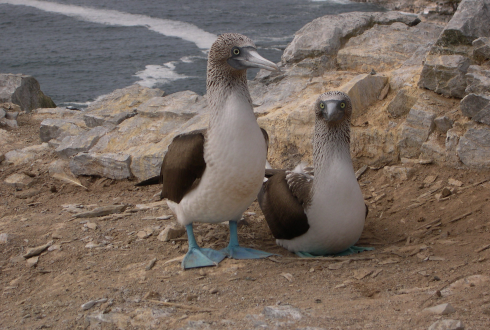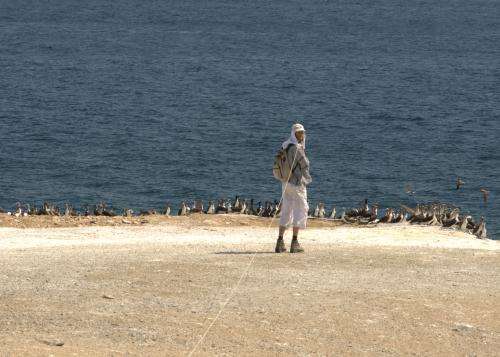One tree likes seabird poop, the next prefers fresh air

Off the west coast of Peru, seabirds deposit thick layers of guano that accumulates on the ground because of the lack of rain. Guano has historically played a key role in agriculture worldwide because it is rich in plant nutrients such as nitrogen and phosphorous. Now, researchers from Wageningen University and Southern Illinois University revealed the effects of guano on the native trees of the arid coasts of South America.
Researchers found that non-nitrogen fixing trees become more abundant closer to sea replacing the usually more abundant nitrogen fixing trees in these deserts. "We think this is related to the positive effect of marine nutrients on non-nitrogen fixing trees" explains Gilles Havik, a former master student at Wageningen University and leading author of the Plos One paper that appeared on January 22.
"Nutrients are limiting in the desert, so this input from the sea through the nitrogen-rich guano has a positive effect for trees that cannot fix nitrogen. What we found very striking is that trees that do fix nitrogen from the air do not seem to benefit from nutrients coming from the sea even though fixing nutrients from the air is expensive for a plant" continues Havik. These findings highlight the important interactions between marine and terrestrial environments, and the need to understand such interaction to guide conservation efforts.

Journal information: PLoS ONE
Provided by Wageningen University















